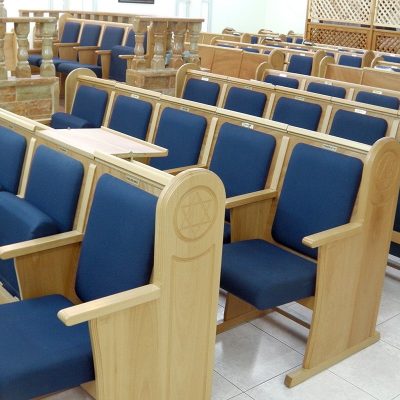The Gemara explains that the difference between a person learning alone and two people learning together is that when two people learn together their words are written down, when one person learns alone his words are not written down.
Rav Kook offers the following explanation. When a person learns by himself the fruit of his efforts is measured by how his learning has changed him as a person. The Pasuk says ועשיתם אותם and we understand it as ועשיתם אתם that a person is meant to make himself as a person through the tool of Torah. The person is meant to actualize what he learns intellectually. However, when he learns with another person he cannot take responsibility for the effect the learning has on the other, he can only make an effort to influence his Chavrusa in a positive manner through their learning. His reward is in his effort, not in the effect it has on another over which he has no control.
Therefore, when learning alone there is no need for Divine writing of his words, we can look at the person himself and see how the words of his learning have been written upon him. But when learning with another the person cannot control how his words get written within and upon his Chavrusa and therefore they are written by a Divine hand instead.
 *********************************************************************************
*********************************************************************************
The Gemara says that if a person who has a regular place where he davens when he dies they will say that he had been a חסיד ועניו a pious and humble person. The B'nei Ysoscher in his commentary on Berachos explains because in order for a person to have a seat in shul that no one else takes he either has to be pious so that he comes early before anyone else is there, or humble and he has a seat that no one else wants.
Rav Kook offers the following explanation. When a person learns by himself the fruit of his efforts is measured by how his learning has changed him as a person. The Pasuk says ועשיתם אותם and we understand it as ועשיתם אתם that a person is meant to make himself as a person through the tool of Torah. The person is meant to actualize what he learns intellectually. However, when he learns with another person he cannot take responsibility for the effect the learning has on the other, he can only make an effort to influence his Chavrusa in a positive manner through their learning. His reward is in his effort, not in the effect it has on another over which he has no control.
Therefore, when learning alone there is no need for Divine writing of his words, we can look at the person himself and see how the words of his learning have been written upon him. But when learning with another the person cannot control how his words get written within and upon his Chavrusa and therefore they are written by a Divine hand instead.
 *********************************************************************************
*********************************************************************************The Gemara says that if a person who has a regular place where he davens when he dies they will say that he had been a חסיד ועניו a pious and humble person. The B'nei Ysoscher in his commentary on Berachos explains because in order for a person to have a seat in shul that no one else takes he either has to be pious so that he comes early before anyone else is there, or humble and he has a seat that no one else wants.
No comments:
Post a Comment